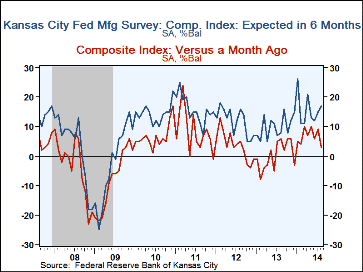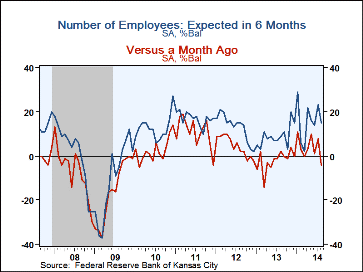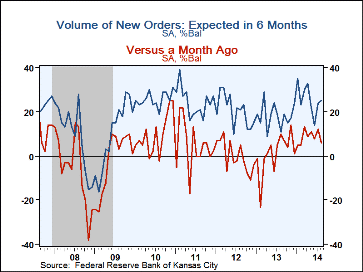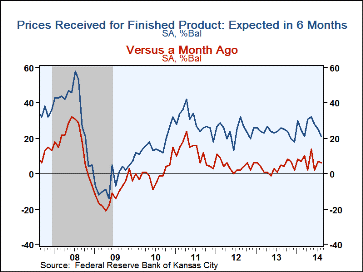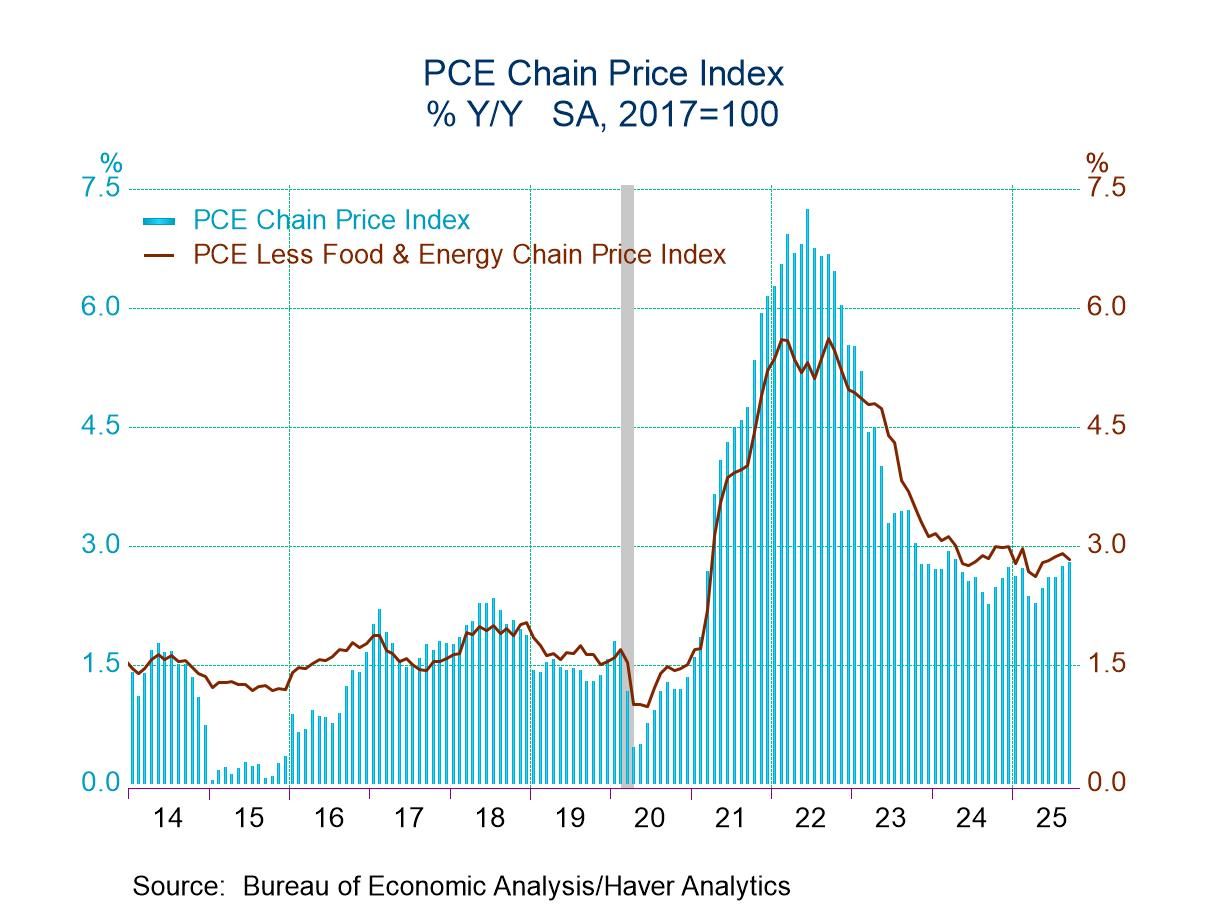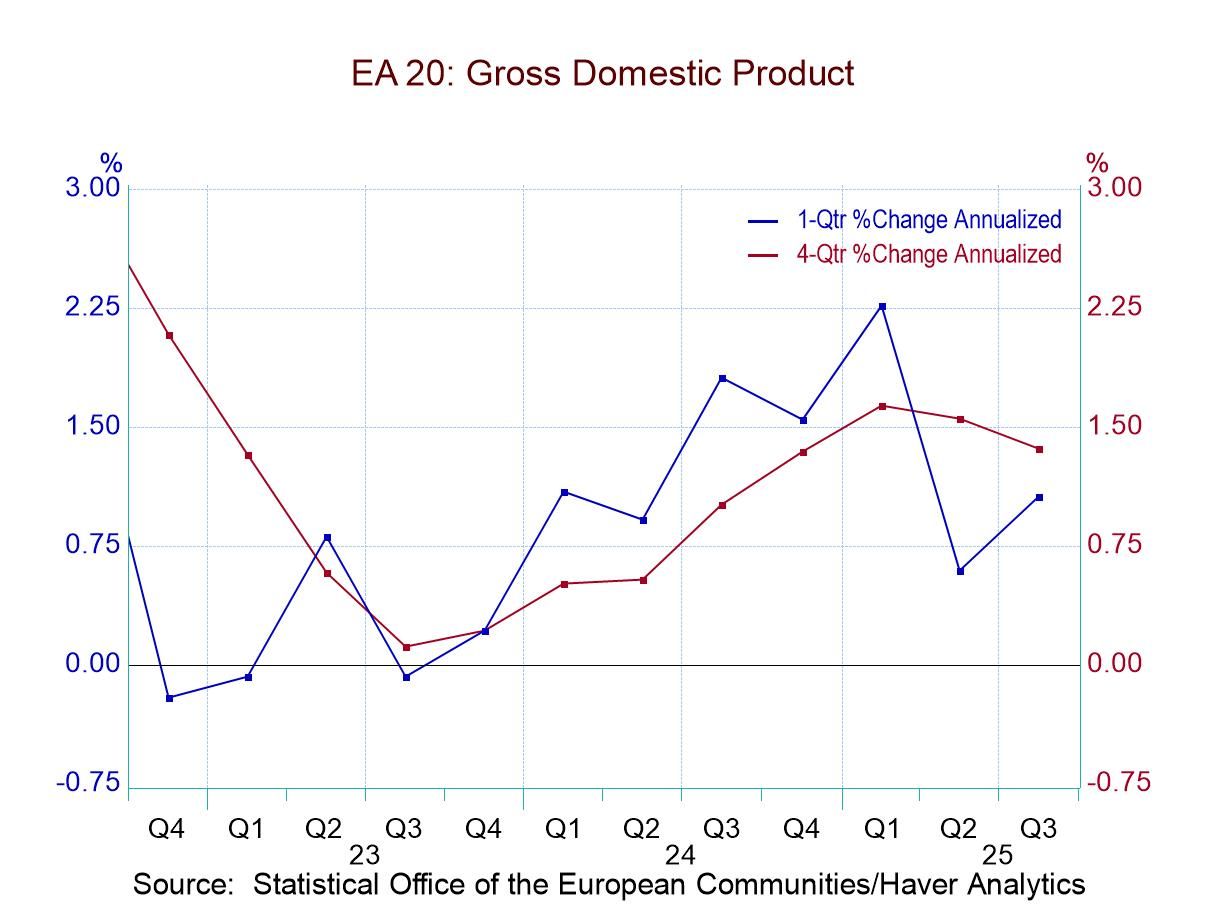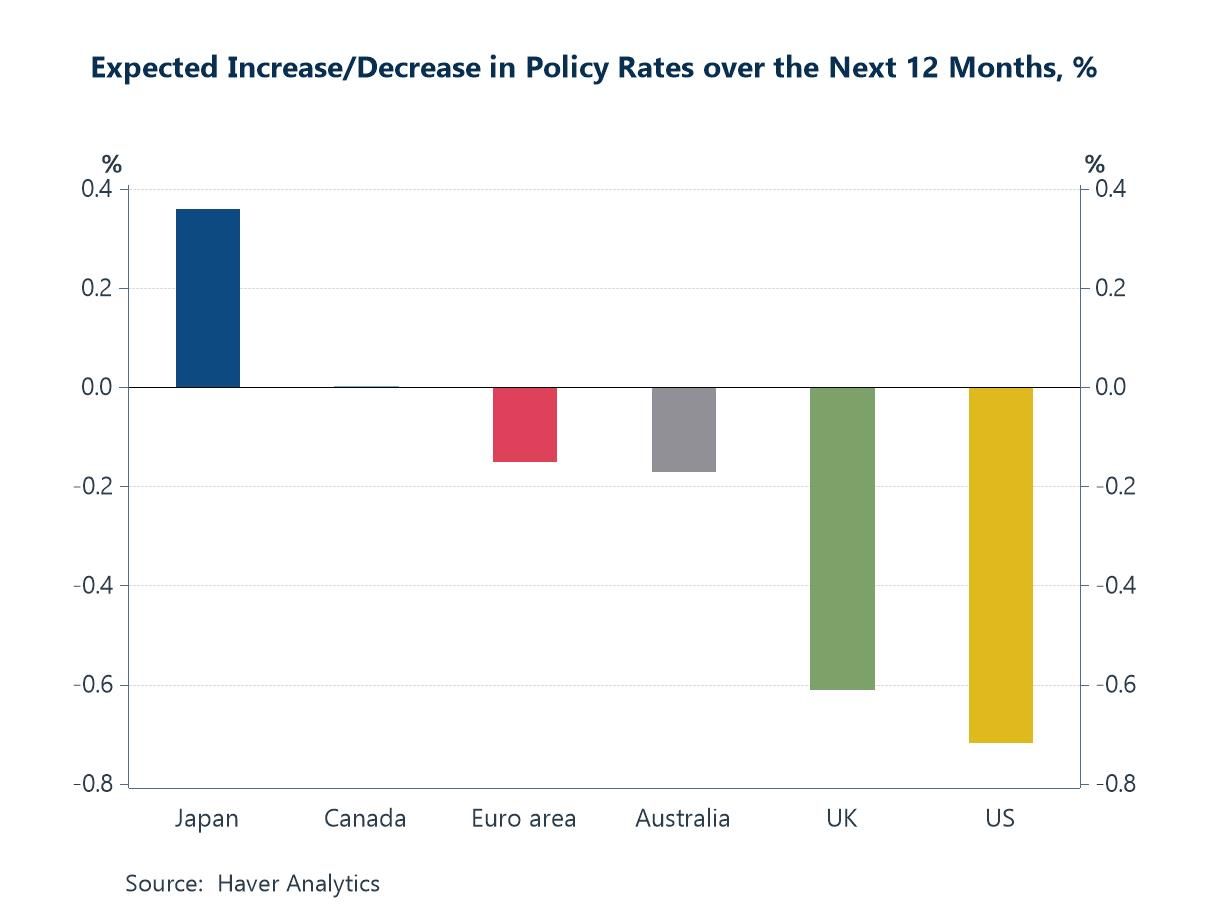 Global| Aug 28 2014
Global| Aug 28 2014Kansas City Fed Factory Sector Activity Weakens M/M
by:Tom Moeller
|in:Economy in Brief
Summary
The Federal Reserve Bank of Kansas City reported that its August Composite index of 10th District factory sector activity deteriorated to 3, the lowest level since December. The composite index is an average of the production, new [...]
The Federal Reserve Bank of Kansas City reported that its August Composite index of 10th District factory sector activity deteriorated to 3, the lowest level since December. The composite index is an average of the production, new orders, employment, supplier delivery time and raw materials inventory indexes. All of these indexes declined this month. The prices paid index also fell but remained near the improved levels of the last nine months.
The expectations reading increased m/m to its highest level since April, suggesting future improvement in business conditions. Higher new orders, shorter delivery times and increasing materials inventories led the gain. Capital expenditures retraced four months of improvement and the expected prices paid fell to the lowest level since March. Expected export orders rose to the highest level since January
The diffusion indexes are calculated as the percentage of total respondents reporting increases minus the percentage reporting declines. The survey included 94 responses from plants in Colorado, Kansas, Nebraska, Oklahoma, Wyoming northern New Mexico. Data for the Kansas City Fed Survey can be found in Haver's SURVEYS database.
| Kansas City Federal Reserve Manufacturing Survey (SA) | Aug | Jul | Jun | Aug '13 | 2013 | 2012 | 2011 |
|---|---|---|---|---|---|---|---|
| Conditions Versus One Month Ago (% Balance) | 3 | 9 | 6 | 6 | 0 | 4 | 9 |
| New Orders Volume | 6 | 12 | 8 | 10 | 1 | 0 | 5 |
| Number of Employees | -4 | 8 | 1 | 2 | -2 | 5 | 11 |
| Prices Received for Finished Product | 6 | 7 | 2 | 5 | 3 | 5 | 12 |
| Expected Conditions in Six Months | 17 | 15 | 12 | 8 | 10 | 12 | 16 |
| New Orders Volume | 25 | 24 | 14 | 11 | 18 | 21 | 24 |
| Number of Employees | 15 | 23 | 14 | 9 | 9 | 13 | 17 |
| Prices Received for Finished Product | 21 | 25 | 28 | 26 | 24 | 24 | 29 |
Tom Moeller
AuthorMore in Author Profile »Prior to joining Haver Analytics in 2000, Mr. Moeller worked as the Economist at Chancellor Capital Management from 1985 to 1999. There, he developed comprehensive economic forecasts and interpreted economic data for equity and fixed income portfolio managers. Also at Chancellor, Mr. Moeller worked as an equity analyst and was responsible for researching and rating companies in the economically sensitive automobile and housing industries for investment in Chancellor’s equity portfolio. Prior to joining Chancellor, Mr. Moeller was an Economist at Citibank from 1979 to 1984. He also analyzed pricing behavior in the metals industry for the Council on Wage and Price Stability in Washington, D.C. In 1999, Mr. Moeller received the award for most accurate forecast from the Forecasters' Club of New York. From 1990 to 1992 he was President of the New York Association for Business Economists. Mr. Moeller earned an M.B.A. in Finance from Fordham University, where he graduated in 1987. He holds a Bachelor of Arts in Economics from George Washington University.


